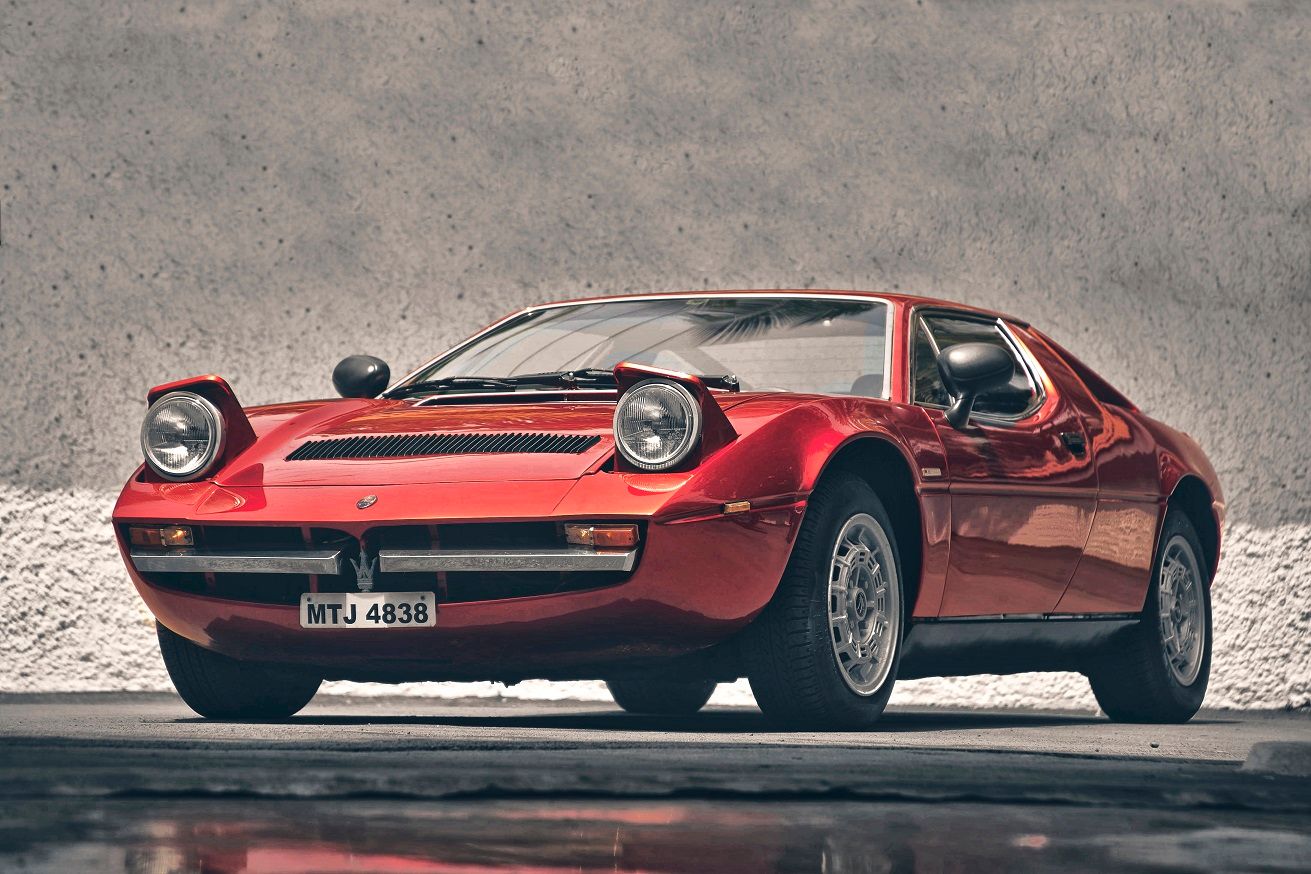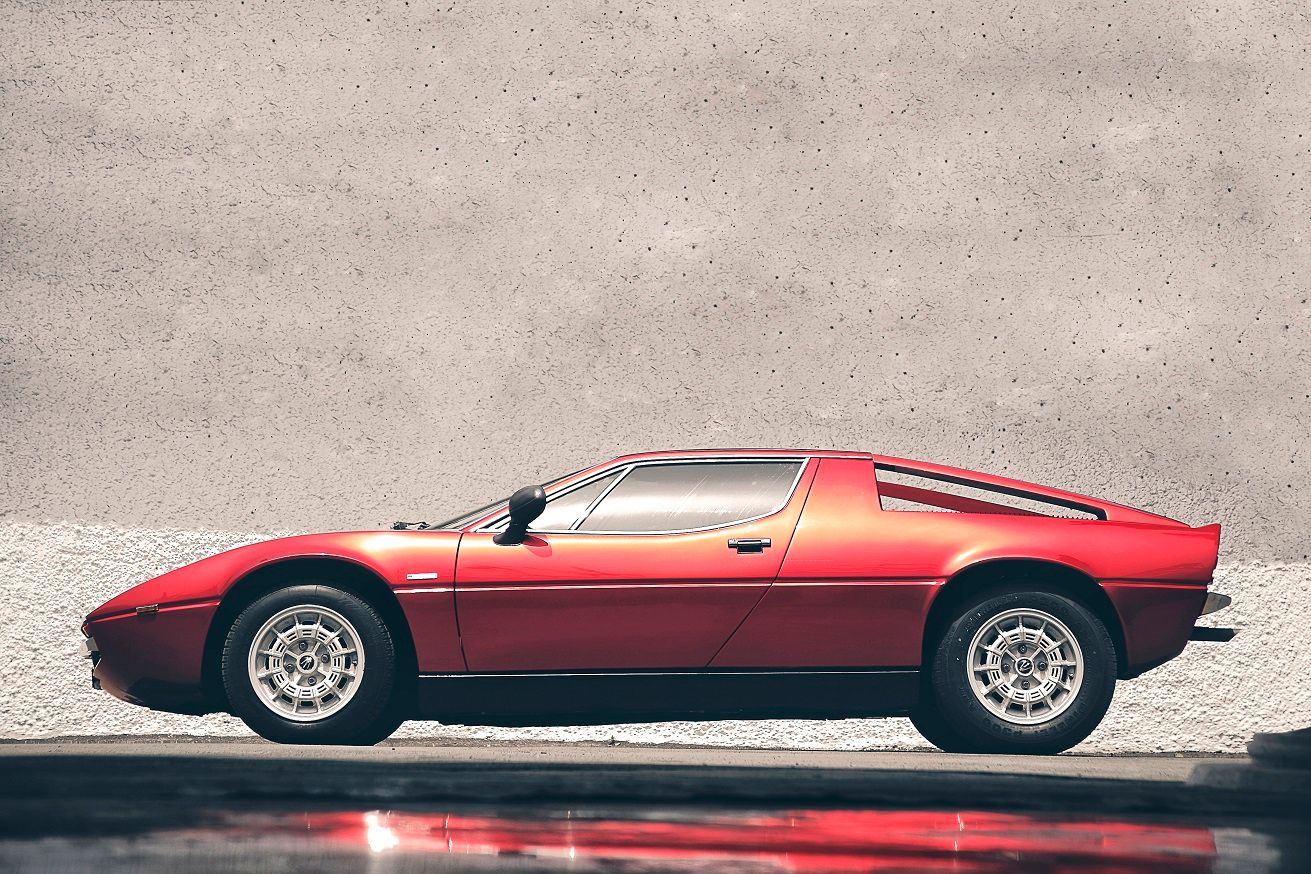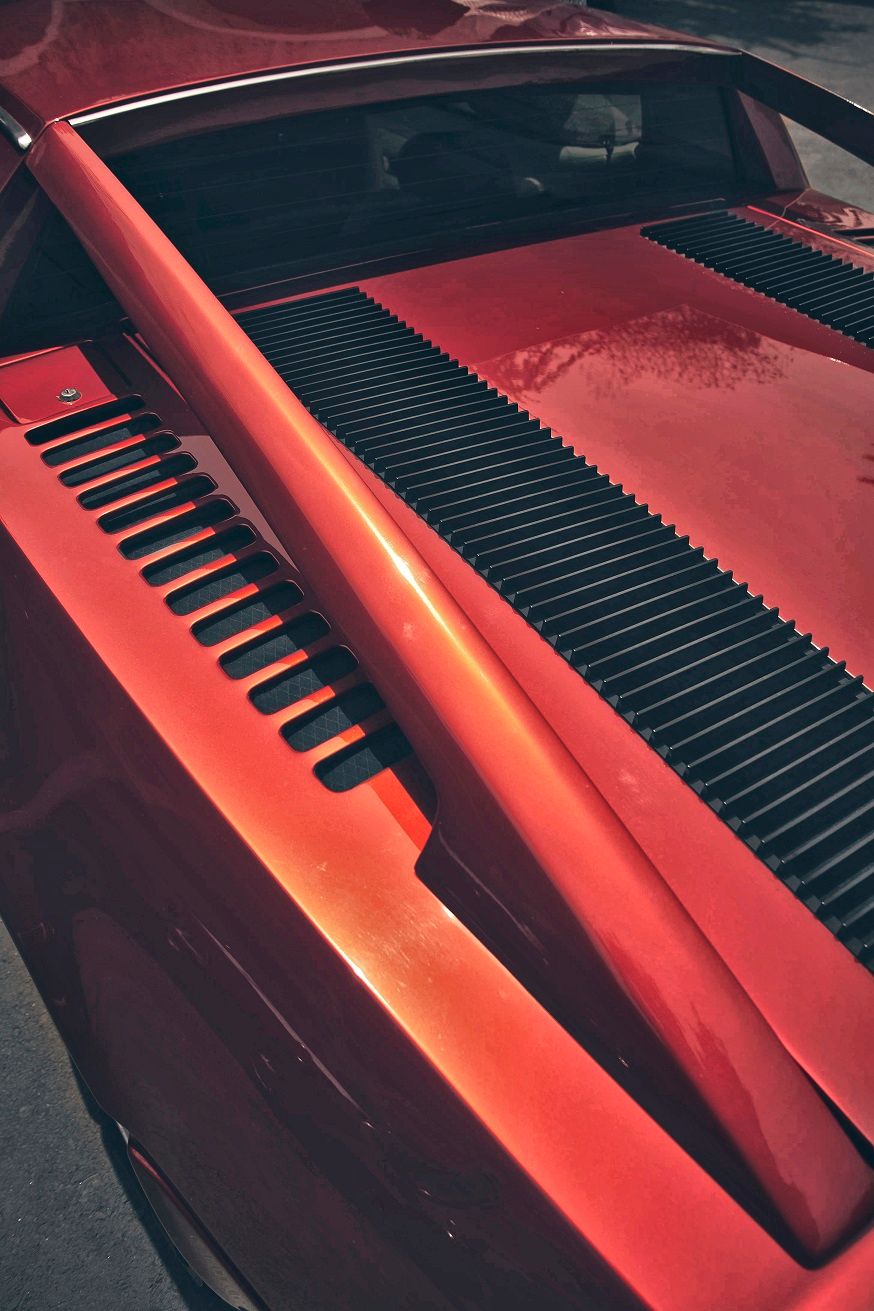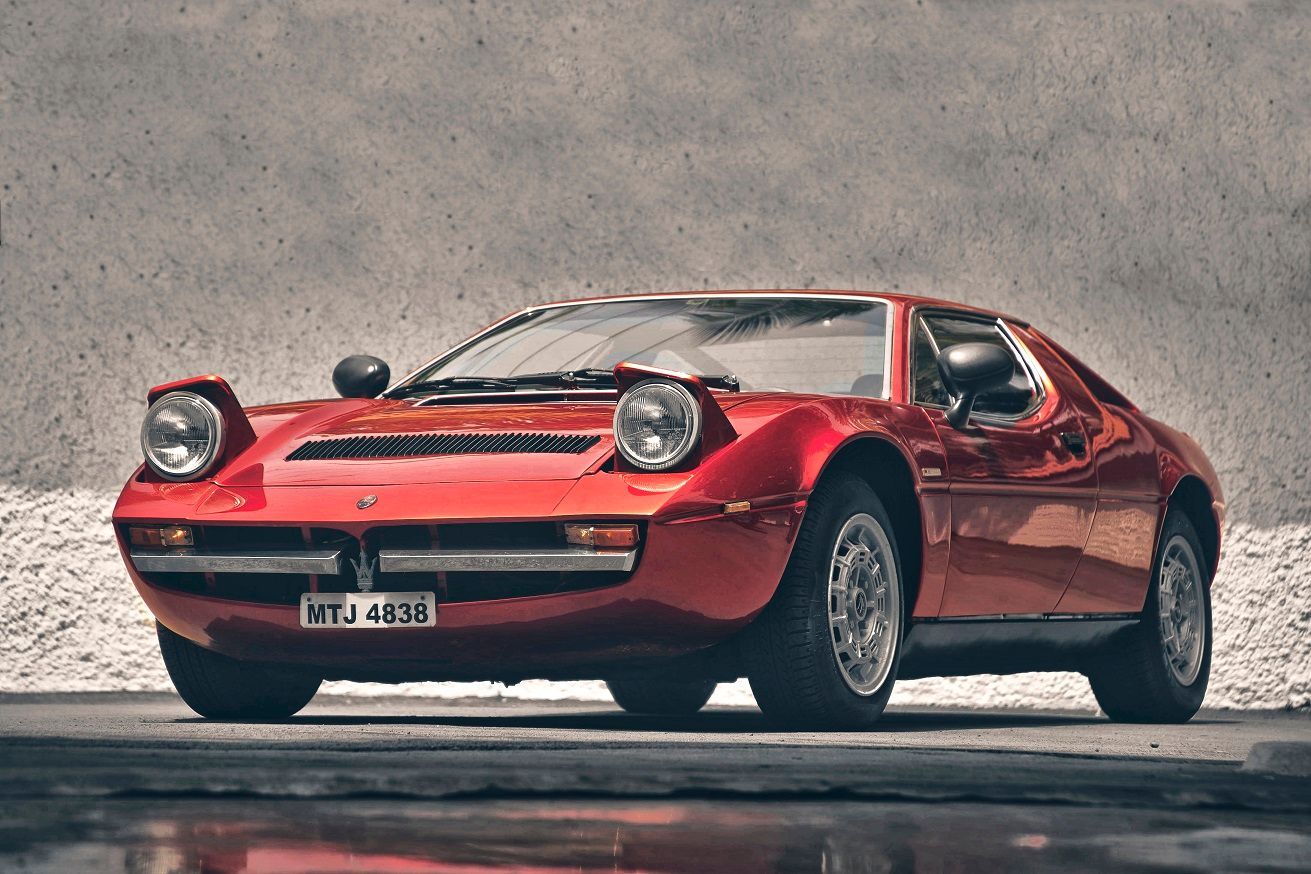The Only Maserati Merak In India
Images: Makarand Baokar
The Maserati Merak was officially launched at the Salon Mondial de l’Automobile in Paris, in October 1972, a year and a half after its bigger sister the Maserati Bora was unveiled. The Bora was not exactly a success: sales were limited to just 564 units over eight years. Some of the factors that contributed to its limited sales were the oil crisis of 1973, and the problems that Maserati faced as ownership changed once again, from Citroën to Argentinian-Italian industrialist Alessandro de Tomaso this time.
The Merak did much better. In an 11-year production run, until 1983, 1,817 Meraks found customers. And one amongst them found its way to India. The Merak featured here is a 1975 model, and was owned by the Poonawalla family for just a couple of years before United Spirits acquired it in 1978.

There is an interesting piece of history behind the making of the Merak. In 1968, when French automotive giant Citroën took control of Maserati, Guy Malleret, Citroën’s appointee at the Italian sports car maker, suggested that chief engineer Giulio Alfieri look at developing two sports cars, both based on the same chassis, and both with their engines amidships. With the sales success of Lamborghini’s Miura and Ferrari’s Dino, Malleret believed that Maserati too needed to develop mid-engined sports cars as ripostes to their arch-rivals.
With some clever thinking from Alfieri and Maserati’s chosen designer Giorgetto Giugiaro of Italdesign, Maserati came up with two exciting cars. The first was the V8-engined Bora supercar to take on Lamborghini’s Miura, and later, the Countach, and the second was the V6-engined Merak, a ‘junior league’ supercar to rival Lamborghini’s Urraco and Ferrari’s Dino 308 GT4.

The Bora and the Merak also shared sheet metal from the front end of the car to the B-pillar, aft of which the Bora featured a heavy, glassy arc that showcased the performance aspect of the more powerful supercar, within which was housed the 320bhp V8; whereas the Merak’s roof ended abruptly with a vertical cut-off and a full-width rear screen, on a completely flat boot lid, marked by two longitudinal air outlet grilles. To soften the silhouette of the Merak, Giugiaro deftly connected the top of the cut-off roof and the tail with a pair of flying buttresses that reflected the profile of the Bora’s rear section.
With a subframe supporting the engine for both the models, the Merak’s significantly shorter V6 left enough space for two small rear seats—mostly suitable for children—but making the Merak a 2+2-seater, nonetheless. The engine of the Merak came from the front-engined front-wheel-drive Citroën SM (for which Maserati had already developed the 2.7-litre V6).


However, for the Merak, the engine size was increased to 3.0-litres, and consequently max power went up from 150 to 190bhp. Other components that came from the Citroën SM were the high-pressure hydraulic brake booster that worked on ventilated disc brakes on all four wheels, the hydraulic system of the retractable headlamps, the dashboard with distinctive oval instrumentation and that characteristic single spoke steering wheel typical of Citroëns from that period.
Comments
Sign in or become a deRivaz & Ives member to join the conversation.
Just enter your email below to get a log in link.
